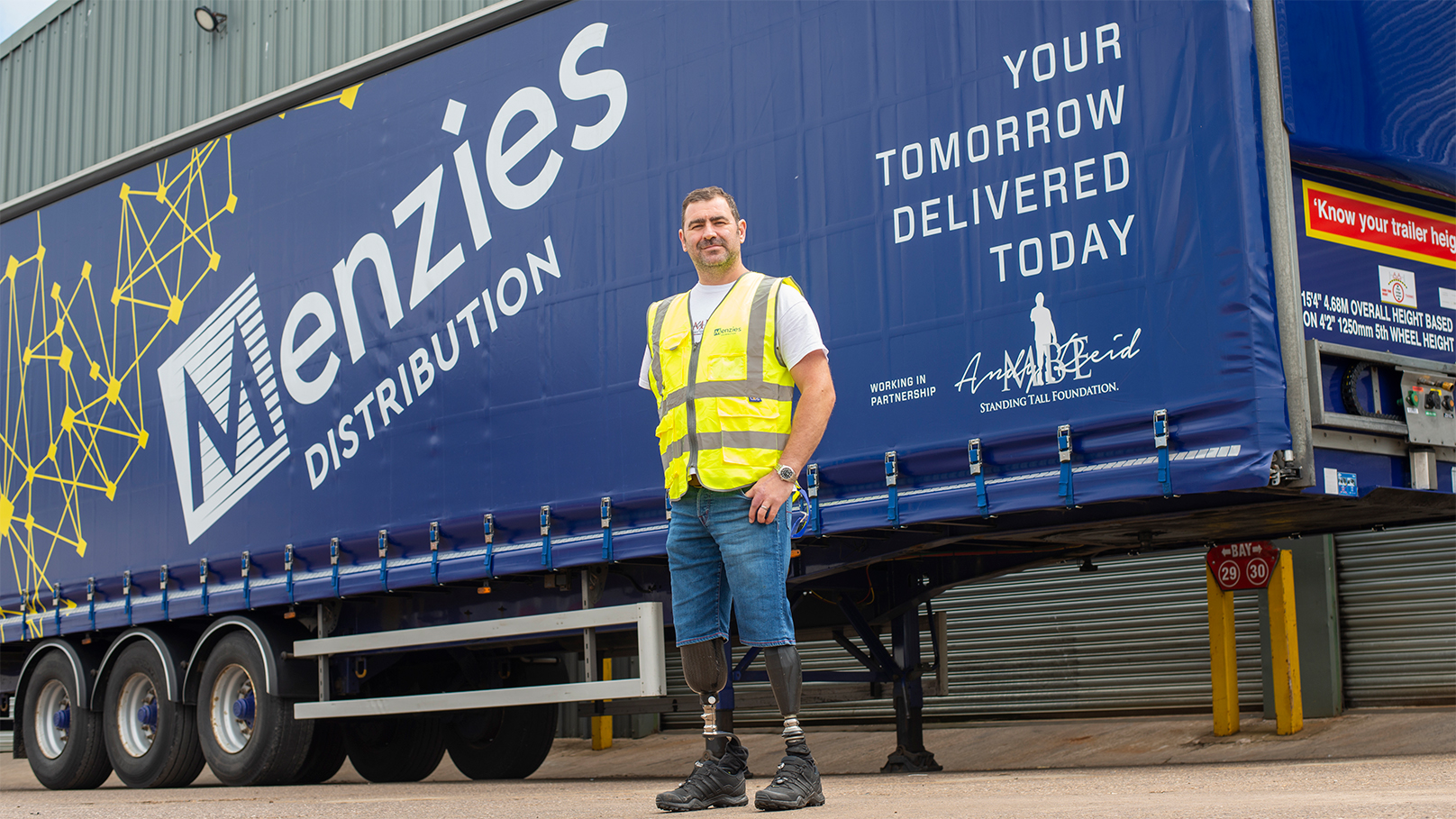

9 October 2022
As a triple amputee, I know a thing or two about logistics. Getting around efficiently. Planning routes carefully and safely. Giving a lot of thought to how much time I’ll need to get from A to B and what I’ll be able to take with me. Veterans like me, with disabilities, face these logistical challenges every day.
It’s possibly no surprise, then, that a major part of my work in the corporate world is with one of the UK’s largest logistics groups. It’s an important industry with its own live challenges in which Forces veterans can become part of the solution.
Many employees in the transport, logistics and supply chain related sectors are ex-Forces, but still not nearly enough. They have varied backgrounds spanning all three services and bring experience far beyond the obvious areas of logistics procurement and engineering. There are reasons wider than just resource why the military is brought in to assist in times of national disaster, civil crisis or even during labour strikes. Transferable skills gained in the Army, Royal Navy or Royal Air Force are critical to so many companies’ operations, reflecting the quality of Services training, a unique ability to work under pressure, solving problems and demonstrating high levels of organisational capability.
It’s a win-win. The UK continues to face serious supply chain issues, largely as a result of a series of one-off shocks over a relatively short period: Covid-19; Brexit; the blocked Suez Canal; higher energy costs, forced even higher by war in Ukraine; and, of course, the driver shortage. At the same time, the charity Veterans into Logistics estimates there are around 120,000 unemployed veterans of working age in the UK.
I served 15 years in the British Army before getting medically discharged after standing on a Taliban IED in Afghanistan. I lost both legs and my right arm. But I’m a survivor, not a victim. I’ve used all sorts of skills gained in the military to start businesses and launch a range of initiatives, both commercial and charitable, across many industry sectors, from opening my own wine bar and coffee shop, to motivational speaking and supporting companies’ brand development.
It’s enormously satisfying to be able to combine my many interests, such as joining with my Menzies Distribution colleague and old friend, Ant Roe, to climb one of the world’s highest mountains: Kilimanjaro in Tanzania. A tall order for an amputee? I’ll make it happen and Ant knows how to kick me in the most effective way, having served with me in Northern Ireland. I’ve scaled ‘Kili’ before, when I was a 22 year old soldier, fit and with little preparation. Now, retracing my steps on prosthetic legs, I’m aiming to show what amputees can really achieve, not just mentally but physically and more employers are realising that people with a disability are effective employees who add value and diversity to their workforce.
An industry looking to fill thousands of vacancies in the most challenging economic conditions for many years can ill afford not to accelerate its recruitment of veterans and the disabled. These segments represent a valuable addition to a talent pool that needs widening as a matter of urgency, not only in logistics but in several industries facing staff shortages. Those from military backgrounds can bring yet another dimension to roles as varied as warehousing, IT and all aspects of supply chain management.
Of course, adding new sources of recruits, like all uncharted territory, may not necessarily be plain sailing. Staff wellness, inclusion and support are thankfully becoming greater priorities for employers, prompted in part by changes in day-to-day working practices as a result of the pandemic. No large workforce is without its share of members needing help from time to time, and some of the problems that are brought to the table may have already been experienced in extreme ways by veterans and disabled workers: post-traumatic stress is an obvious one, but depression, isolation and loneliness, anxiety and suicidal tendencies should all be on the radar of employers with an awareness of mental health that aim to build a sustainable, productive staff base.
Promoting a deeper understanding of personal problems among staff is one of the many ways in which ex-service recruits can accelerate positive change in the corporate world. Supporting the employment of veterans, recognising military skills and qualifications and working with organisations such the Career Transition Partnership to support the recruitment of service leavers, as well as those who may have seen a dip in their post-military fortunes before becoming available for work again, can undoubtedly pay dividend for companies and the greater good of their staff.
by Andy Reid MBE
Andy Reid MBE is a brand ambassador for Menzies Distribution. Climbing Kilimanjaro raised funds for his Standing Tall Foundation, which provides counselling and mental health support.